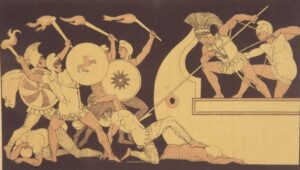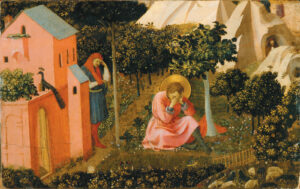The Great Books course is devoted to the study of the great works of literature and history.
The literature read will focus on the great and good works that have stood the test of time, and will introduce students to and exemplify the breadth and depth of the literature of our culture and civilization. When studied deeply, these works lead students to grapple with and understand what it means to be human. This encounter profoundly forms the human heart and directs its desire towards true goods and beauty, those things that lead to human flourishing.

The study of history not only makes students knowledgeable of their place within their own culture and the Catholic tradition, but it also expands their experience by considering famous lives well or poorly lived. This formation in history aids the formation of their moral insights.
History, insofar as it is only a study of particular and contingent events, is not a liberal art. However, it can be studied in a way that is liberal or formative of the mind. This is the case when history is studied not only for the sake of what it shows of the universal features of human nature but also when the mind informed by faith can see the providential order of history, especially salvation history.
Indeed, history is a certain kind of music, musica humana, the story of humanity and of how God’s providence has guided it. Such an approach is warranted not only from within Scripture itself but also with St. Augustine’s theological-historical vision of the two Cities, the City of God and the City of Man. When studied in this way, history is preparatory for ethics, politics, and theology.

The sequence will be organized thematically by year, cycling through Greek and Roman, Christendom, Renaissance and early modern, and modern and American. History will turn to primary sources when possible (for instance, by reading Herodotus and Plutarch). The thematic years will also provide a basis for integrative connections with Latin, Music, and even Science and Religion.
